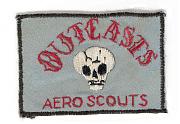I've never been overly comfortable with the term "chivalry" being used to describe conflicts...if for no other reason than the term itself carries too much mythology and revisionist connotations to be worthwhile (by that I mean that it was used by later generations to define and describe an ideal way of conflict that may never have actually existed). Chivalry could also be very class-distinctive and applied to a certain group or limited groups. Tom's quite right to point out tribal conflicts as containing elements of what we might consider a code of conduct (Marc's more qualified to discuss the fuzzy side than I am, though....), and he's also right in pointing out that those codes vary greatly depending on the culture. To draw on his frontier example, ritualized torture was a common part of many tribal conflicts (the degree varying depending on the tribe in question)...something that was horrifying to the white newcomers. But there were also cases where attacks might be broken off and conflicts ended by an act of bravery (honorable conduct) on the part of one or more warriors.
During the Civil War, Grant was known for his honorable conduct toward his opponents in the Western theater. He had the reputation of demanding unconditional surrender, but on the whole his terms were usually honorable. What tripped his switch (I think) was the growing realization that what he considered honorable conduct (to include sparing certain production facilities) was viewed as weakness by his opponents. This has always been one of the interesting points for me (probably because of my Frontier Army research): the intersection of competing codes of honor and/or conduct. I think it's those collision points that make war even more hellish.







Bookmarks